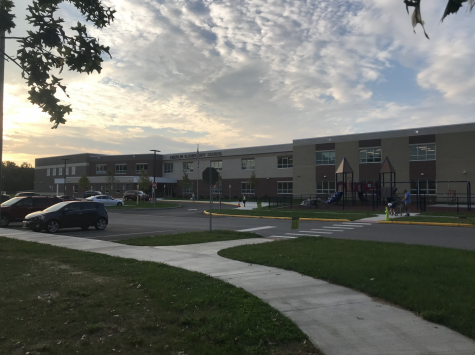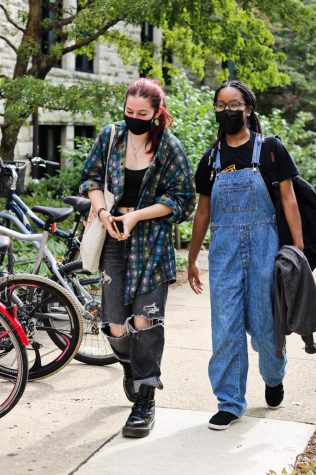International Admissions Adapts to COVID-19 Challenges, Looks to Future
With restrictions on travel, the international admissions and student life teams created new strategies for recruiting international students to apply for the class of 2025. The College is optimistic that travel restrictions and embassy closures will be less of a challenge for international students in the 2021–2022 school year.
The College’s international admissions team typically holds in-person events in countries around the world. This year, the team has created virtual informational sessions and college fairs to connect with high school students that they cannot reach in-person. The changes have allowed the team to interact with more prospective applicants than it would have been able to in a pre-pandemic year.
“There’s definitely a feeling that I’ve reached more students and a more diverse population of students in terms of where in the world they were,” said Sophie Mettler-Grove, senior assistant director of international admissions and coordinator of international admissions.
Pre-pandemic, the international admissions team would only visit one or two of a country’s largest cities and stay in each for a day or two. Virtual recruitment allows the team to interact with a more geographically diverse selection of students from multiple cities or countries all at once. Additionally, the virtual events might attract prospective students who were unable to spend time and money traveling to an in-person event in a far-away city.
“Instead of just seeing the three or four top schools in Bangkok, I can meet with students in those schools as well as the rest of the country,” said Mettler-Grove.
However, the team has faced some difficulties with virtual recruitment as well. Some students may have issues with poor internet access and some high schools do not allow virtual visits, which created barriers for the admissions team working to interact with these students.
“There’s some things like a high school visit or a regional gathering that make the most sense in-person,” said Mettler-Grove.
The overall success of the virtual programming has prompted the international admissions team to reconsider the role virtual approaches will play once safe international travel resumes.
“I think it’ll be interesting to see the balance that we strike. I think it’ll be still some in-person travel, probably not the same as before, and a little bit more strategic,” said Mettler-Grove.
Although the College has had success recruiting international applicants, current international students at Oberlin feel that remote programming for them has fallen short. College first-year Nevaan Bawa was studying remotely from his home in Thailand last semester and expressed frustration with the general quality of social resources offered to remote students.
“Everything that I did last semester — like meeting people — was all on my own,” Bawa said. “Oberlin did provide online bingo nights and stuff, but that didn’t really do anything. I don’t know if they tried enough.”
Bawa completed the fall semester remotely due to COVID-related health and safety concerns, but he faced additional difficulties in remote education due to his international location. Due to the 12-hour difference between Eastern Standard Time and Indochina Time, Bawa lived on a unique schedule, waking up at 3 p.m. and sleeping at 6 a.m.
“I had no social life. I was not fully connected to my home or Oberlin. It was a weird mixture of the two,” Bawa said.
Bawa is now on campus for the spring semester, after deciding that studying in-person might alleviate mental health, academic, and social concerns associated with remote education.
As an American citizen, Bawa did not have any issues procuring a visa or dealing with travel restrictions, though other international students have faced barriers in attempts to travel to campus. Many American embassies have resumed offering student visa services across the world, but students in China and Brazil face challenges related to American travel restrictions. The Trump administration created these restrictions and the Biden administration has not yet lifted them.
Assistant Dean of Students and Director of the International Students Resource Center Josh Whitson explained that these restrictions are driven by politics in addition to public health developments, such as the new COVID-19 variants.
“Politicians are being advised by public health officials, but the decisions still involve politics and are not based purely on public health,” he said.
According to Whitson, the unpredictable nature of COVID-19 coupled with the effects politics has on travel policy make it almost impossible to forecast. However, Whitson expressed cautious optimism that navigating travel restrictions and embassy closures will be less of a problem for international students in the 2021–2022 school year.
“My hope is that travel and embassy-related problems facing international students will be gone by fall 2021. I think that every indication is that they will be, but the past year has taught me that it’s difficult to predict these things,” he said.
Mettler-Grove echoed Whitson’s hopes.
“In most cases, I think our students will have much more accessible visa appointments and flights to the U.S. this fall than they did this past year,” she said.







